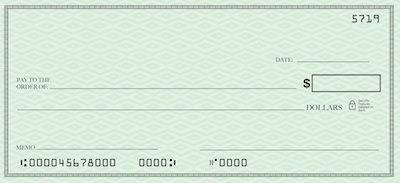
Lisa Servon is an economist in disguise.
A number of bloggers have linked to this article in the last few days and it’s well worth reading. It’s about Lisa Servon, a professor of city and regional planning at the University of Pennsylvania and a former dean at the New School and her on-the-ground research. To understand why people use check-cashing services, which are looked down on by many “sophisticated” analysts, she worked in one for 4 months and asked a lot of questions.
There’s so much I like about the article and I highly recommend reading it. I particularly liked the point about transparency: people who go into these check-cashing stores know exactly what they will pay for what they get, unlike what often happens in banks. Indeed banks appear to me more and more to be like regulated utilities.
This quote from her is what caused me to think of Professor Servon as an economist:
I knew that the people I had worked with closely who don’t have very much money know where every penny goes. They budget things. They know where to get the best deals on things. And so it struck me that if they were using check cashers, there must be a good reason for that.
Notice that Servon thinks about people the way good economists do: when people show by their behavior that they are making smart decisions elsewhere, she, rather than assuming irrationality, assumes rationality and tries to understand why making this decision also might be a good decision. But she doesn’t just assume. She shows by her own behavior that she is empirical. She actually works at a check-cashing store for four months and gets to understand the economics of those stores from the viewpoint of the customers.
By the way, her website is worth looking at. One link took me to her op/ed in the Wall Street Journal on February 24, 2014 (Feb. 25 for print edition) titled “The Post Office as Payday Lender? Return to Sender.” I remember reading it and learning from it at the time, but, like most readers, had not noticed who wrote it. Here’s one paragraph that stands out:
Consider the one financial product that the Postal Service already sells. For a money order of up to $500, it charges a bit more than $1.20–significantly higher than the price charged by many current check-cashing businesses. RiteCheck, the New York City-based check casher where I worked as a teller for four months last year as part of my research, charges 89 cents for money orders up to $500. The PLS chain of check cashers, which operates in several states, charges nothing.
And this:
While the infrastructure and existing staff at the Postal Service are under-used assets, it’s unclear how they could be deployed. The white paper notes that 59% of post offices are located in ZIP Codes with one or no bank branches. But its analysis of the potential demand ought to include the check cashers and payday lenders that typically sell the products and services the post office imagines offering. These businesses are increasing their hours–the branch of RiteCheck where I worked is open 24/7–while the post office seems to be heading in the opposite direction.
The whole op/ed, which, unfortunately, is gated, is a beautiful take apart, showing the absurdity of the U.S. Postal Service, without a residual claimant, becoming an entrepreneurial firm.

READER COMMENTS
Thaomas
Feb 15 2017 at 12:58pm
I think assuming rationality of consumers and perfect competition of suppliers is a good place to start an analysis, but I think it is a mistake to rule out informational/processing failures or market failures in considering a policy proposal. On general principles (exactly what I’d not recommend as definitive) I’d suspect that having some Post Offices in some places cash checks might make sense, but I’d like to see the numbers or rather the decision process.
AlanG
Feb 15 2017 at 2:14pm
David, thanks for the blog post. Professor Servon was interviewed a while back on Teri Gross’s “Fresh Air” radio show that is syndicated on NPR. It was a very illuminating show and pretty much changed my mind about this service.
Phil
Feb 15 2017 at 3:13pm
The postal service has been considering the idea of bringing back the Postal Savings System of years ago, partially to help with their fiscal problems and to serve these populations without banks.
Jeff G.
Feb 15 2017 at 3:57pm
Makes sense to me. A bank’s goal is to increase the dollar amount of its demand deposits. Giving customers access to that money is just a cost for them, so they are looking for high balance to transaction customers. Enter check cashing places that serve the low balance to transaction population.
Comments are closed.